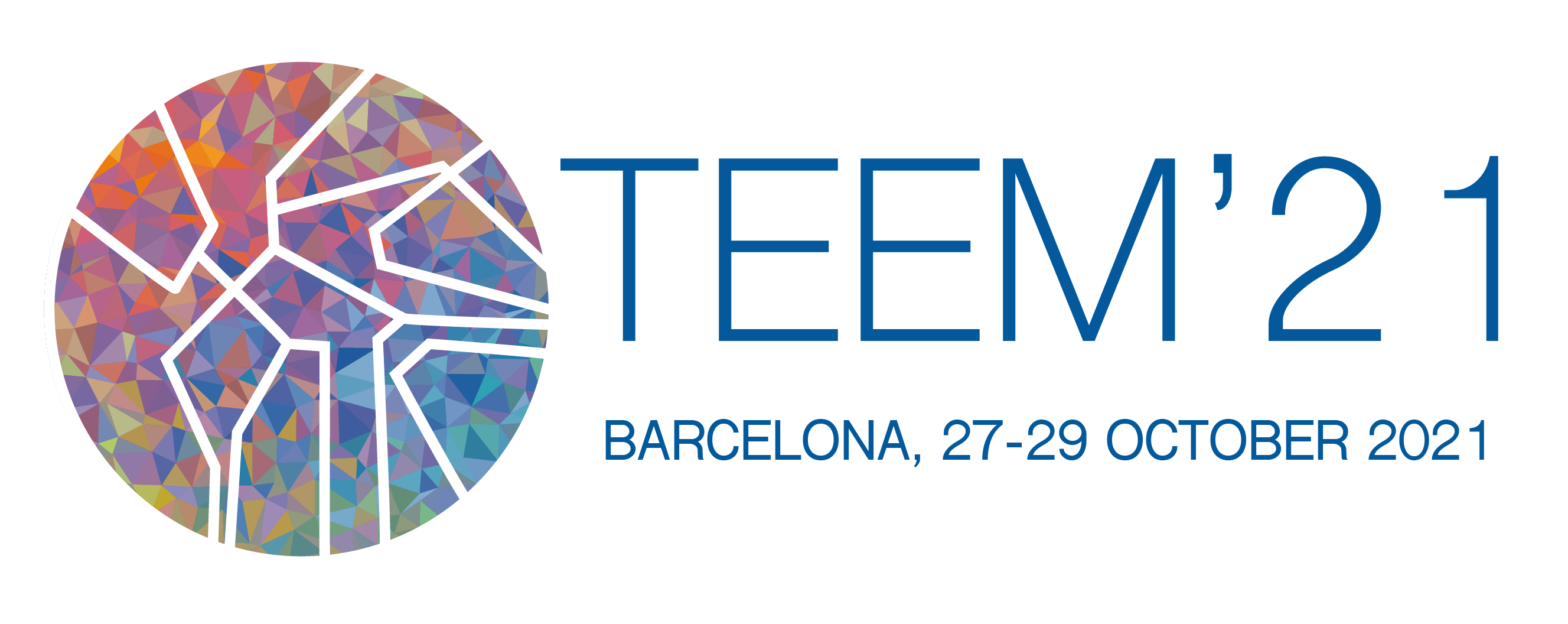Presentation
Lack of diversity and inequality are problems in all areas of the society, but they are especially visible in Science, Technology, Engineering and Mathematics (STEM). STEM areas are crucial for society’s development; they are key elements in the current global health crisis, where these areas are playing a significant role in addressing the evolving needs of society. Furthermore, according to the World Economic Forum’s last reports, governments have “an urgent need to address the impact of new technologies on labour markets through upgraded education policies aimed at rapidly raising education and skills levels of individuals of all ages, particularly concerning STEM”.
Fostering diversity and reducing inequalities are part of UNESCO’s Sustainable Development Goals (SDG) of UNESCO for 2030. Among the goals, we can find “empower and promote the social, economic and political inclusion of all, irrespective of age, sex, disability, race, ethnicity, origin, religion or economic or other status” (SDG 10.2). Attracting representative people from all sectors of society, different cultures, disabilities, ethnic groups, gender or sexual identities to STEM areas is one of the approaches of organisations, institutions and governments for reducing inequality.
Besides, within the reduction of inequality and the fostering of diversity, the lack of women in many sectors of society, with particular attention to decision-making spaces, is particularly relevant in the STEM field. Women are one of the groups with less representation in STEM, although they represent 50% of the population. Furthermore, this problem is compounded if the intersection of gender, race or other characteristic is analysed.
This track aims to identify, share and valorise experiences, projects and best practices focused on promoting diversity and reducing inequality in STEM sectors, both academic and professional.
Topics
- Fostering diversity in STEM fields
- Attracting women to STEM studies
- Diversity and inclusion
- Teaching innovation related to inclusion and diversity
- Best practices about diversity in STEM
- Dissemination initiatives to promote diversity in STEM
- Gender studies in STEM
- Actions against prejudices and stereotypes
- Promoting women in scientific careers
- Gender perspective in education
- Ethics and diversity in STEM
- Diversity in research
- Co-education practices for STEM
Track Instructions and Program (Friday 29th, F2F-Hybrid, 11.00-13.00, local time, Location Class 3.4, floor 3)
The dynamics of the session will be as follows:
- All authors will have to record a 5m video of their presentation, which they will send to the chairs for management and subsequent public viewing.
- After welcoming the chairs, we will proceed to the presentation of the attendees, who in 2 minutes (regardless of whether they are in person or online), should introduce themselves and indicate the essence of their contribution without any presentation.
- This will be followed by a debate moderated by the chairs.
The order of the presentations will be:
- ID 5: CreaSTEAM. Towards the improvement of diversity gaps through the compilation of projects, best practices and STEAM-Lab spaces.
- ID 18: Social Innovation from University Education to Reduce the Digital Gap in Chiapas
- ID 58: Delving into gender gap perceptions of computing students: A replication study
- ID 59: Initial performance analysis in the evaluation of computational thinking from a gender perspective in higher education
- ID 76: Quí-Bot-H2O Challenge: integration of computational thinking with chemical experimentation in early ages including gender, inclusive and diversity patterns
- ID 77: Maker Education in Primary Education: Changes in Students’ Maker-Mindset and Gender Differences
- ID 93: A Model for the Development of Programming Courses to Promote the Participation of Young Women in STEM
- ID 105: A pilot study about the perception of experts in engineering education
Sponsored by
Track Scientific Committee
Alicia García-Holgado (University of Salamanca, Spain) – Chair
Carina S. González-González (University of La Laguna, Spain) – Chair
Aruquia Peixoto (CEFET/RJ, Brazil) – Chair
Amparo Camacho Díaz (Universidad del Norte, Colombia)
Ana María González Ramos (Universidad Autónoma de Barcelona, Spain)
Andrea Vázquez-Ingelmo (University of Salamanca, Spain)
Ángeles Domínguez Cuenta (Tecnológico de Monterrey, Mexico)
Anita Tabacco (Politecnico di Torino, Italy)
Adriana Gamazo (University of Salamanca, Spain)
Blanca Ruth Orantes de Pineda ( Universidad Tecnológica de El Salvador, El Salvador)
Camino Fernández-Llamas (University of León, Spain)
Cassia Gonçalves Isac (IFRJ, Rio de Janeiro, Brazil)
Elvira Rincón-Flores (Tecnológico de Monterrey, Mexico)
Emilia López Iñesta (Universitat de València, Spain)
Encarnación Gimeno Nieves (Universidad de Alicante, Spain)
Francisco José García-Peñalvo (Universidad de Salamanca, Spain)
Germania del Rocio Rodriguez Morales (Universidad Técnica Particular de Loja, Ecuador)
Gabriela Marín (University of Costa Rica, Costa Rica)
Jimena Pascual (Pontificia Universidad Católica de Valparaíso, Chile)
José Carlos Sánchez-Prieto (University of Salamanca, Spain)
Juanjo Mena (University of Salamanca, Spain)
Lourdes Moreno (University Carlos III of Madrid, Spain)
Lucy Esther Garcia Ramos (Universidad del Norte, Colombia)
Mª Cruz Sánchez-Gómez (University of Salamanca, Spain)
María Luisa Sein-Echaluce Lacleta (University of Zaragoza, Spain)
Maristela Holanda (University of Brasilia, Brazil)
María Soledad Ramírez-Montoya (Tecnológico de Monterrey, Mexico)
Marta Martín del Pozo (University of Salamanca, Spain)
Mervi Heikkinen (University of Oulu, Finland)
Noemí Merayo Álvarez (University of Valladolid, Spain)
Noura Aknin (Abdelmalek Essaâdi University, Morocco)
Patricia Paderewski (University of Granada, Spain)
Patricia Sánchez-Holgado (University of Salamanca, Spain)
Pedro Plaza (UNED, Spain)
Pino Caballero-Gil (University of La Laguna, Spain)
Rosa Gil-Iranzo (University of Lleida, Spain)
Sara García Cuesta (University of La Laguna, Spain)
Silvia Rueda Pascual (University of Valencia, Spain)
Sonia Verdugo-Castro (University of Salamanca, Spain)


